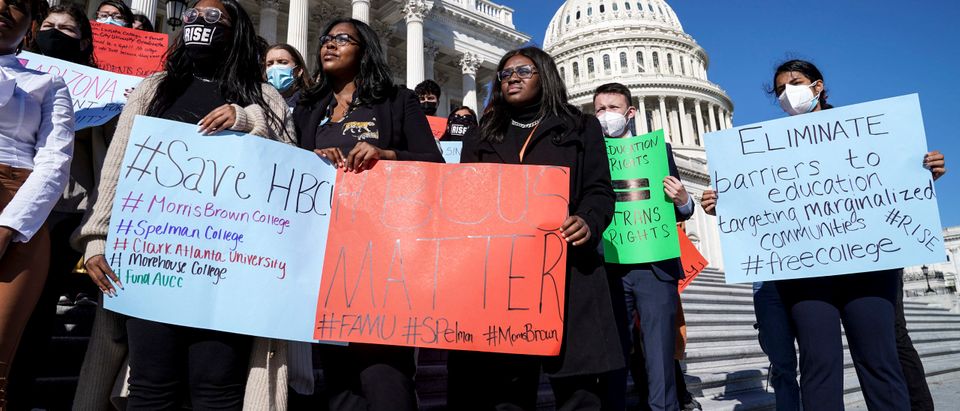A report released Wednesday by the conservative American Compass think tank found the push for “college-for-all” in the U.S. has been “disastrous.”
Important new @AmerCompass Atlas today on the catastrophic failure of America’s college-for-all education model.
Nowhere else in American life is the allocation of public resources so misaligned with the needs and preferences of the American people. 🧵https://t.co/7qZ4QZu8Fs
— Oren Cass (@oren_cass) January 19, 2022
The report criticizes the American education system, saying that the U.S. sends “hundreds of billions of dollars annually toward higher education while slowly starving noncollege pathways of support.” It blames a “small group of professional educators and policymakers” and says their goals aren’t in line with many Americans. (RELATED: Biden Wants Free Tuition For Students At Historically Black Colleges As Reparation For Slavery, White House Adviser Says)
The number of 25 to 29-year-olds with at least an associate’s degree has jumped from 37% in 2005 to exactly 50% in 2020, according to the report. However, it notes that a large number of those with at least an associate’s degree graduate with significant debt. Forty percent of recent college graduates have landed jobs for which a degree is not required, according the report, which cites the Federal Reserve Bank of New York.
“The problem is not that many more students are enrolling in higher education, or that public funds go to supporting those programs,” the report states. “The problem is the failure to produce successful college graduates. Enrollment is rising much faster than completion; the past two generations have seen little change in the share of young Americans achieving a bachelor’s degree by age 25.”
The report notes that the U.S.’s “college pipeline proves incredibly leaky,” with 13 out of 100 high school students not completing high school. Of those 100 high school students, 29 who graduated will not enroll in college and 27 who do enroll in college will “fail to complete a degree.” Thirteen of the 31 who complete a college degree will land jobs not requiring one, according to the report.
Only 18 of 100 young Americans, which American Compass dubbed the “Fortunate Fifth,” transition “smoothly” from high school to college to career, the report states.
The report goes on to argue that young adults in a “well-functioning education system” who chose different pathways could all “see the system as having worked well for them.” In the U.S., 53% of young adults who earned a bachelor’s degree agree that the “public education system prepares someone like me for success in life,” while 37% disagree. On the other hand, only 30% of those who do not hold a bachelor’s degree agree and 55% disagree, according to the report.
The report also said that “most Americans reject the college-for-all model” and that parents don’t think college is a place where everyone can find success. Rather, parents at a nearly 10 to one ratio want high schools to “offer students different pathways based on their aptitudes and interests” instead of setting a “goal of bringing all students along to the same end point, which is typically preparation for college.”
The report concludes by noting that the allocation of resources towards college location is unique in its misalignment with the “needs and preferences” of Americans. The report argues that policymakers should rebalance public education funding to non-college pathways to benefit more Americans.


